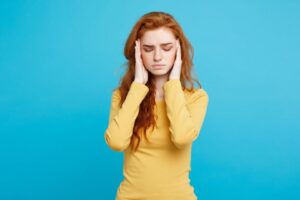There are a lot of things we can live without, but sleep isn’t one of them.
Many of us don’t get the sleep we need in normal times, let alone during a worldwide pandemic. In fact, fear of catching COVID-19 and grappling with everything that’s changed because of it has given rise to a new term for this type of insomnia called “coronasomnia.”
Economic hardships, disruption to daily routines, and the uncertainty of not knowing when the pandemic will end have hiked stress and anxiety—both of which are not sleep’s best bedfellows.
If you’re having trouble getting to sleep or staying asleep and are experiencing more intense dreams—you’re not alone.
According to the Journal of Clinical Sleep Medicine, COVID-19 has increased online search queries for insomnia in the United States and worldwide, with the number of queries peaking around 3 am. And CentraState’s Center for Sleep Disorders has seen a jump in patients with insomnia symptoms related to COVID-induced stress.
“Loss of sleep wreaks havoc with our health and can compromise the very immunity we need to resist COVID,” says Samuel Krachman, DO, pulmonary disease specialist and medical director of CentraState’s Center for Sleep Disorders.
But here’s some welcome news. Even with everything that’s on our minds, says Dr. Krachman, we can take steps to combat coronasomnia and get restorative rest.
8 Tips to Get You Sleeping Again
1 – Let There Be Light. Getting more natural light, particularly morning light, keeps our 24-hour sleep-wake cycle regulated.
2 – Nix Napping at Night. A 10-20 minute power nap can boost alertness and focus. Anything after 4 pm can disrupt your evening sleep.
3 – Cool it on the Caffeine. Try to reduce your caffeine intake, especially later in the day or evening when you’re winding down.
4 – Exercise. Exercise boosts your mood and helps you sleep better, and sleep helps you exercise better. They feed each other.
5 – Clear the Clutter. A clean, clutter-free sleep space promotes calm and relaxation. Add in a lavender aroma to up the tranquility.
6 – Cut Back on the News. Staying informed is good. Addictively watching the evening news is bad. It can amp up adrenaline and sabotage sleep.
7 – Keep it Cool. Lower the heat before turning in. Studies show between 60 and 67 degrees Fahrenheit is best for a sound sleep.
8 – Stick to a Schedule. Get up and go to bed at the same time every day. It keeps your internal clock steady and makes it easier to fall asleep.
CentraState’s Home Sleep Study
Not all sleep issues are stress-induced. If you or a family member has excessive daytime sleepiness, loud snoring, and episodes of stopped breathing during sleep, you could have obstructive sleep apnea (OSA). CentraState’s Home Sleep Study lets our sleep experts diagnose sleep apnea from the comfort of your home using a small portable device that monitors airflow, respiratory effort, and blood oxygen level. For other suspected sleep disorders, in-person testing is available.
Learn more about CentraState’s Center for Sleep Disorders at centrastate.com/sleep or 732-303-5070.





